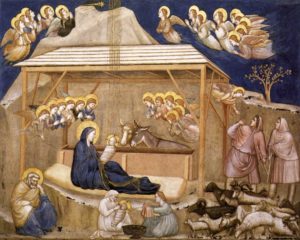Ten Commandments of Peacemaking
In reality, it does sound very typically Franciscan to just “let it happen,” but we do have a methodology. We follow a kind of “Ten Commandments of Peacemaking” when it comes to seeking non-violent resolution.
- BE POSITIVE: Try to discover the positive side of every person and of every situation.
- REJECT PREJUDICES: When one has to deal with others, remember to take into consideration their culture with all of its richness, problems and needs.
- HEAL BROKEN TIES: Commit oneself to be an instrument of peace and reconciliation by encouraging mutual understanding and cooperation.
- TAKE PEACE AS A GIFT FROM GOD, AND ASK FOR IT IN PRAYER: In meetings for peace and non-violence take care that the spiritual is given priority over the material.
- VENTURE OUT FOR PEACE: Do not hesitate to take risks. Do not delegate to others one’s own responsibility.
- LEAVE ROOM FOR DREAMS AND CREATIVITY: Dreams can become realities and creativity demands that we never simply denounce, but must, at the same time, announce. (Never criticize something without also offering a creative solution – “There is no such thing as a problem, only opportunities for creative solutions”)
- ACCEPT THE FACT THAT IT IS POSSIBLE FOR SITUATIONS TO CHANGE: Have trust in yourself and in other people.
- THERE IS A WAY TO PEACE AND NON-VIOLENCE: (We borrowed this from a Pope) SOLIDARITY helps one to go beyond one’s self and to reach out to others; DIALOGUE is a means to humbly search for the truth; COMMUNITY inspires one to accept one another on an equal basis in love and respect.
- PEACE AND NON-VIOLENCE IS BASED ON THE FOUR PILLARS: (stated by Pope John XXIII, in Pacem in Terris, 1963) TRUTH comes from God. Every person has a right to receive objective information; JUSTICE promotes impartiality towards individuals, protects weak people and proclaims that “might” is not “right”; FREEDOM of religion, opinion and movement should be enjoyed by every human person, and one should use that freedom with a high sense of civic responsibility; LOVE comes from a recognition of our solidarity as a human family under God.
- PEACE IS THE FINAL GOAL…AND THE STARTING POINT: Be willing to start over and over again without being discouraged.
The final point is probably the most important, and the most realistic.
-friar Peter Damian OFM Conv.
In part 3, read about some of the “successes and failures.”



